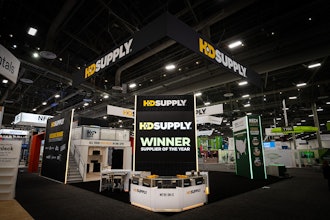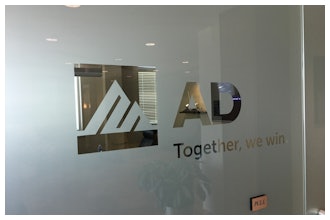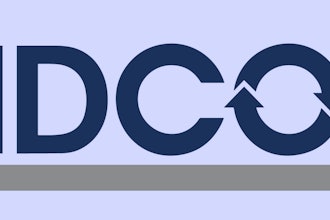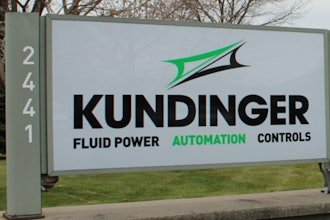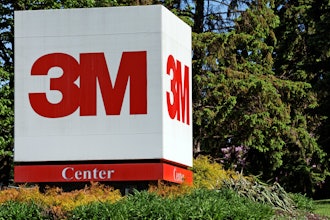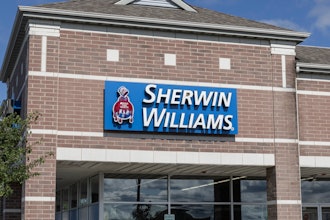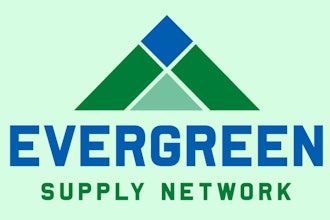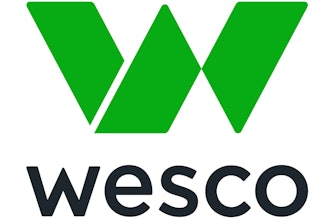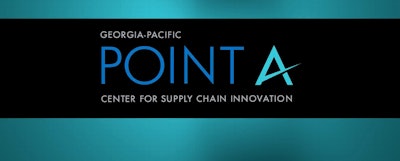
ATLANTA — Georgia-Pacific announced Friday it will bring together leading supply chain companies to develop solutions within its new Point A Center for Supply Chain Innovation.
Opening this June in an initial 15,000-square-foot space at Atlanta's TechSquare Labs, Georgia-Pacific's Point A Center for Supply Chain Innovation will serve as a collaborative space for businesses ranging from multi-national corporations to emerging startups and academic institutions.
Georgia-Pacific is investing between $5 million and $7 million in the overall center and has begun actively recruiting members. Among the first member organizations to offer their unique capabilities and expertise include: Chick-fil-A, Delta Air Lines, Genuine Parts Company, Grainger, Siemens, as well as Georgia-Pacific's parent company Koch Industries.
Point A's members will explore use cases for applying Industry 4.0 innovations, including robotics, artificial intelligence, blockchain, machine learning and autonomous vehicles, among others, to tackle some of the supply chain's most pressing challenges, including retail models, network efficiency and data visibility.
"Now more than ever before we're seeing a greater emphasis on digitalization, automation and advanced analytics in plants and warehouses," said Kevin Heath, Georgia-Pacific senior vice president and chief procurement officer. "Supply chain leaders are trying to unlock the potential of current and future technologies, and we believe collaborating with the best minds will help drive innovation at a faster pace."
Over the next couple of years, Georgia-Pacific has plans to move Point A into a new, dedicated 23,000-square-foot space within its downtown GP Center headquarters building. Also planned is an additional 30,000 square feet of warehouse space for proof-of-concept testing; its location has yet to be determined.
"The pressure for business transformation is both a challenge and an opportunity, but there's no wait-and-see," said Christian Fischer, Georgia-Pacific president and CEO. "Point A will focus on solutions in the supply chain that will ultimately serve customers faster and more reliably, as well as provide a superior brand experience for an end-consumer."
Beyond its benefits for supply-chain-focused companies, Point A will bolster Atlanta's position as #SupplyChainCity, the transformation of Atlanta's physical supply chain assets into a digital ecosystem powered by the internet of things, claiming another area of tech for a city already respected in the FinTech and cybersecurity circles.
"One of the biggest areas of opportunity for Atlanta is a private industry-led shared space for commercializing supply chain and logistics technologies," said Ben Harris, director – supply chain ecosystem expansion for the Metro Atlanta Chamber. "Point A bridges that gap, creating a new paradigm aimed at enhancing supply chain flexibility, connectivity, and advanced supply chain planning."
Matt Markham, director of the Center of Innovation for Logistics at the Georgia Department of Economic Development, added, "We see Point A as a chance to demonstrate how the state's technology resources can be an asset for supply-chain-driven companies and an opportunity to leverage Georgia's unique competitive advantage in logistics infrastructure. By promoting collaboration and developing solutions that will benefit the entire supply chain, we'll strengthen Georgia's leadership position as the South's global gateway."
Innovators interested in joining Point A should visit gp.com/point-a. For more information on Georgia-Pacific, visit gp.com.
Based in Atlanta, Georgia-Pacific and its subsidiaries are among the world’s leading manufacturers and marketers of bath tissue, paper towels and napkins, tableware, paper-based packaging, office papers, cellulose, specialty fibers, nonwoven fabrics, building products and related chemicals. The group's familiar consumer brands include Quilted Northern, Angel Soft, Brawny, Dixie, enMotion, Sparkle, Mardi Gras, Vanity Fair, and STAINMASTER household cleaning products. The company operates nearly 200 facilities and employs approximately 35,000 people directly and creates nearly 92,000 jobs indirectly.












